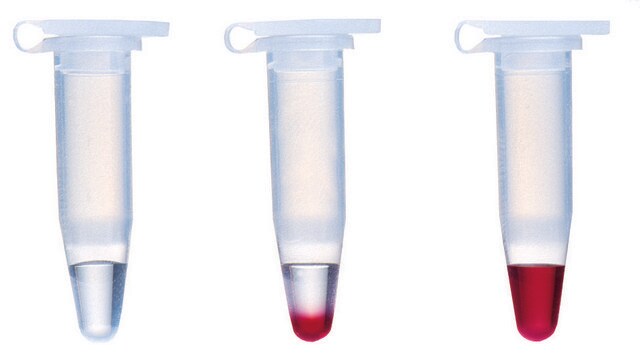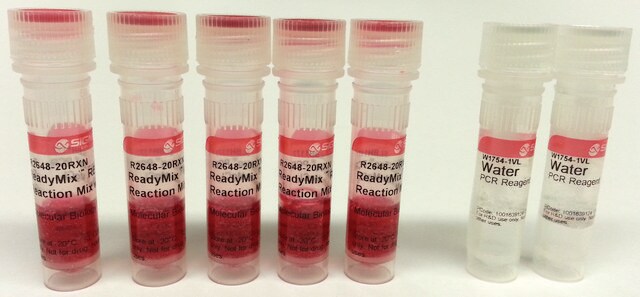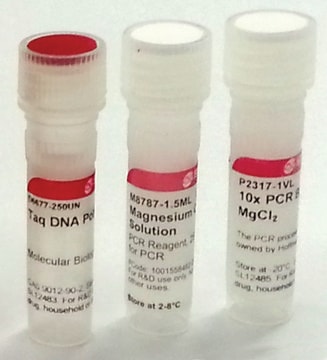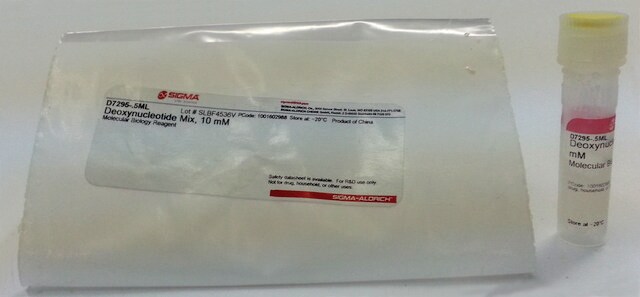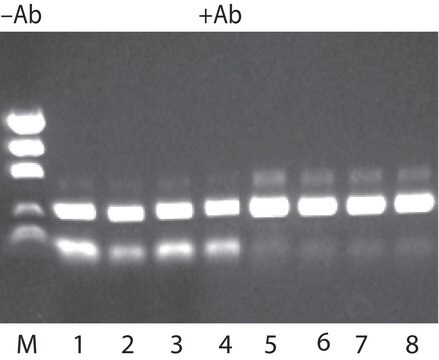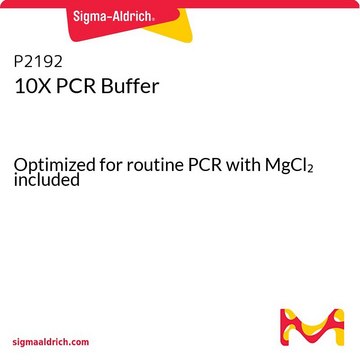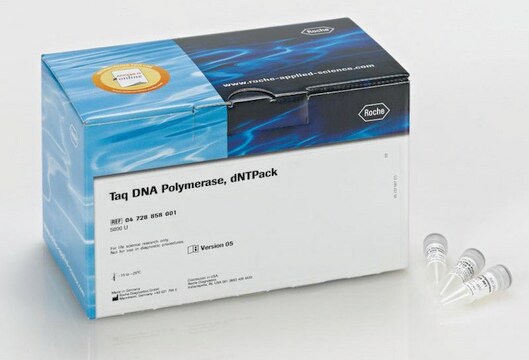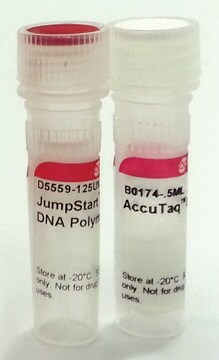D6063
REDTaq® SuperPak™ DNA Polymerase
Taq for routine PCR with inert dye; with 10X buffer & dNTP mix
Synonym(s):
DNA polymerase with dNTP, DNA polymerase with loading dye, Taq DNA polymerase
About This Item
Recommended Products
Quality Level
form
liquid
usage
sufficient for 250 reactions
feature
dNTPs included
hotstart: no
concentration
1 unit/μL
technique(s)
PCR: suitable
color
red
input
purified DNA
suitability
suitable for PCR
shipped in
wet ice
storage temp.
−20°C
Related Categories
General description
Application
- reverse transcriptase-polymerase chain reaction (RT-PCR)
- nested PCR
- routine PCR amplification
Features and Benefits
- Contains inert dye that enables visual confirmation of enzyme addition and direct loading onto agarose gel without the need for an additional loading dye
- Suitable for nested PCR
- Contains ultrapure 10mM dNTP mix in a separate vial
Legal Information
related product
Storage Class Code
10 - Combustible liquids
Flash Point(F)
Not applicable
Flash Point(C)
Not applicable
Choose from one of the most recent versions:
Already Own This Product?
Find documentation for the products that you have recently purchased in the Document Library.
Customers Also Viewed
Protocols
Reviews the applications and benefits for RedTaq, including standard RedTaq, Hot Start RedTaq and RedTaq for genomic DNA PCR.
Method for PCR using genomic DNA or other complex templates
Our team of scientists has experience in all areas of research including Life Science, Material Science, Chemical Synthesis, Chromatography, Analytical and many others.
Contact Technical Service